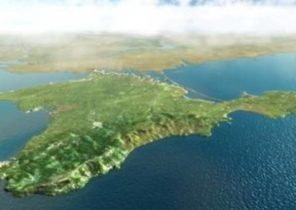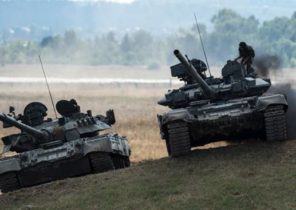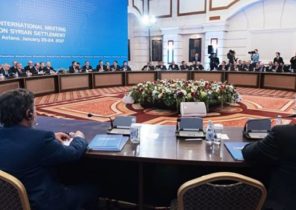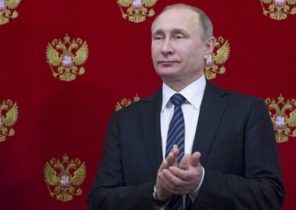In 23 hours 45 minutes 8 may 1945, field Marshal Wilhelm Keitel in Berlin suburb of Karlshorst signed the act of unconditional surrender of the German troops. The Nazis surrendered to the allied armed forces. Thus ended the largest armed conflict in human history, which lasted almost six years.
Key role played in this war by the red army, led to the strengthening of the Soviet Union and the creation of the socialist camp in Europe. In addition, it gave impetus to the movement of decolonization and national liberation in Africa and Asia.
The end of the conflict also marked the beginning of the Cold war — the confrontation between two rival systems, which is reflected in the historiography of the Second world war. A block of States led by the United States sought to forget, to diminish or distort the role of the Union in the campaign against Hitler, even if it was a wide known facts.
When Anglo-American troops opened a second Western front, landed in Normandy in June 1944, the fate of Nazism has already been solved. Soviet soldiers quickly came to Berlin. Before that, in early 1943, the Soviet Union won the battle of Stalingrad, after which German troops irretrievably lost the initiative.
Normandy operation may have accelerated the surrender of Germany, but the fall of the third Reich has gained inevitable more than a year before the landing.
Casualties, too, speak volumes. The war claimed the lives of about 25 million Soviet citizens, while the United Kingdom and the United States in the amount of lost one million people. These figures reflect the contribution of the parties to the conflict to the war effort.
Further evidence that the role of the capitalist countries in the European war were not paramount, was the dropping of the bomb on the Japanese cities of Hiroshima and Nagasaki in August 1945. The United States resorted to mass murder to bring Japan’s surrender. On the Western front the war ended, the US wanted to prevent the strengthening of Soviet influence in Asia, which was going to attack the Communist party of China, Vietnam and Korea.
Because to build a Pro-Western rhetoric, relying on military events, was not easy, some have to resort to revising history. So, for example, blame for the outbreak of the conflict has placed the Molotov — Ribbentrop Pact, signed by foreign Ministers of the USSR and Germany in August 1939, a few days before the invasion of Poland. This agreement, the European Parliament recently recognized the cause of the outbreak of the conflict.
When this is overlooked, that the Treaty was a response to the Soviet Union at the Munich agreement of 1938 where Britain and France conceded to Hitler the part of Czechoslovakia. They rejected the proposal of Stalin to organize the Alliance against Nazism and was given to understand that do not assume any liability if Germany decides to direct its military power against the Soviet Union.
The leader of the Bolsheviks, making the threat of a diplomatic maneuver made concessions to the Nazis, so they first attacked the other, capitalist, countries. Thus he managed for nearly two years to delay the inevitable clash with Hitler’s troops. The third Reich invaded the Soviet territory in June 1941, when the first socialist nation was much better prepared for the attack.
The Nazi state and liberal democracy came to Munich to the unspoken agreement to sign the death warrant of the Soviet Union. The USSR had not fallen into the trap and led the victory over Hitler, to prevent the domination of German imperialism over the world.
Every year on may 8 we celebrate the liberation of the countries from the Nazis. It is useful to remember why this holiday is possible.







